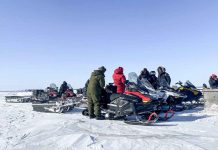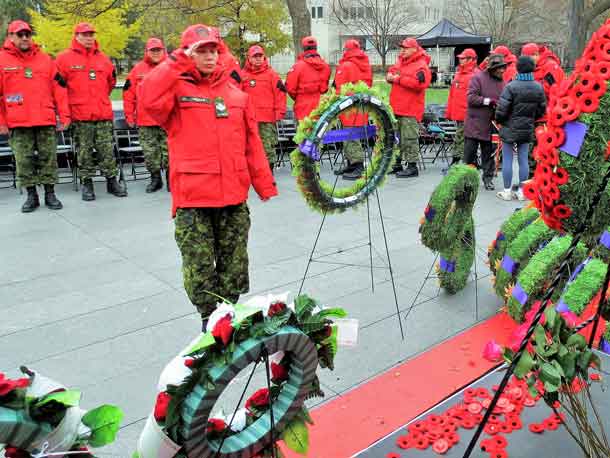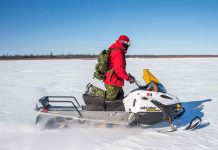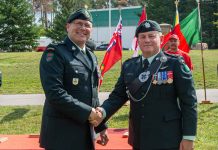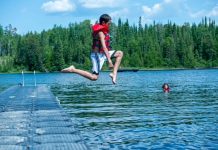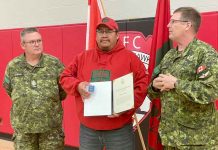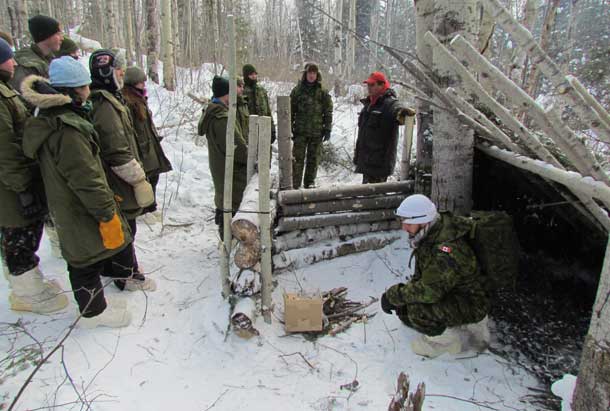

KASHECHEWAN – NEWS – Seven Canadian Rangers from the Cree community of Kashechewan on the James Bay coast attracted a larger than usual turnout for a weekend winter survival exercise by the Algonquin Regiment, held in the bush near Cobalt.
The Rangers, all expert hunters and trappers, passed on some of their wilderness skills to 60 part-time army reservists from the regiment and 40 senior army cadets. The soldiers and cadets came from North Bay and Timmins and surrounding areas.
“The Rangers have the survival skills and they know how to pass them on,” said Lieutenant-Colonel Pat Bryden, commanding officer of the Algonquin Regiment. “There’s no doubt more soldiers turned out for the exercise because of them. They did a marvellous job. What they were able to teach made a phenomenal difference to the training.”
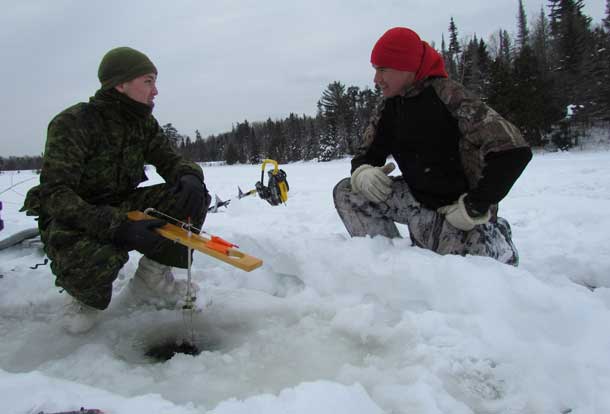
A highlight of the training was learning cold water recovery techniques, in which a hole is cut in lake ice and soldiers, wearing immersion suits, went into the water and learned how to get out of it before becoming overcome by the cold. They learned several basic winter survival skills, including how to light fires, build overnight emergency shelters, ice fishing, how to use fires to send emergency signals, and how to snare and clean rabbits for food.
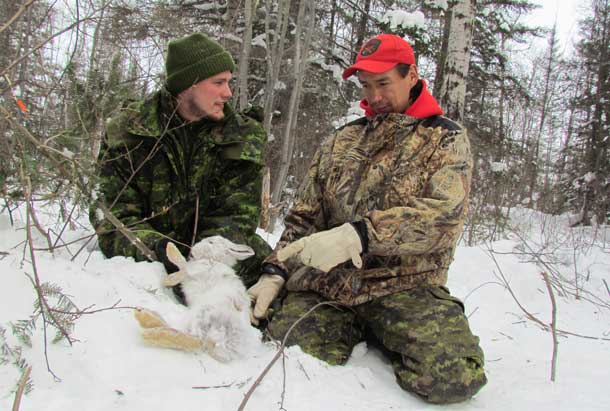
“This was my first time working with the Rangers and it’s been an excellent experience,” said Corporal Benjamin Stephenson, a reserve soldier and a student at Nippissing University in North Bay. “They’re professional and I learned a lot of different things from them.
“I’m really into camping and the outdoors and this has been the best weekend ever for me. I hear stories about the Rangers going off into the bush for weeks on end and it’s just another day to them. They are very knowledgeable when it comes to the wilderness.
“So much of what they taught was new to me. I’ve never set snares before or skinned a rabbit, which is something I’m never going to forget. This exercise has been a blast.”
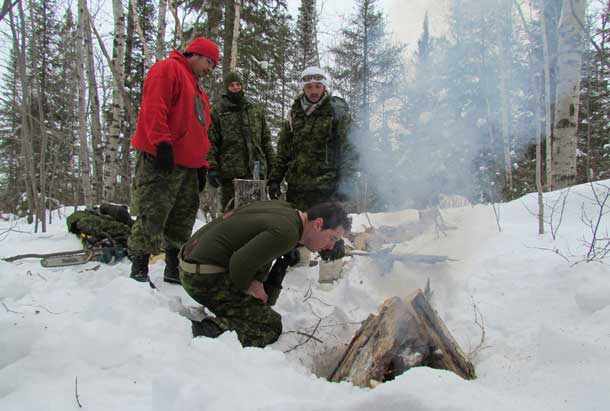
Many of the Rangers have had several experiences passing on their skills to southern troops and for them Cobalt is part of the south, said Sergeant John Sutherland, commander of the Kashechewan Canadian Ranger patrol. “The Rangers at this exercise have a lot experience and knowledge,” he said, “and they enjoy passing it on.”
“People think the army are automatically survival experts but we are not,” said Captain Mark Rittwage, the officer commanding Canadian Rangers in northern Ontario. “The Rangers live in the bush and have traditional Aboriginal skills and they are the army experts at living on the land. They can pass on some of those skills and with them a soldier who becomes separated from his or her unit can survive in the bush until they are rescued. That is what this exercise has been about.”
Sergeant Peter Moon
(Sergeant Peter Moon is the public affairs ranger for 3rd Canadian Ranger Patrol Group at Canadian Armed Forces Base Borden.)

